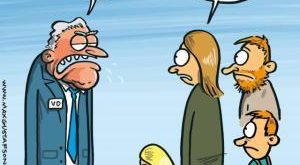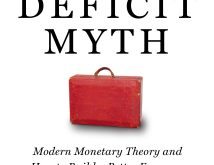Uncertainty, learning, and rational expectations The rational expectations hypothesis presupposes — basically for reasons of consistency — that agents have complete knowledge of all of the relevant probability distribution functions. And when trying to incorporate learning in these models — trying to take the heat of some of the criticism launched against it up to date — it is always a very restricted kind of learning that is considered. A learning where...
Read More »Diktaturens kreatur
Rund 7000 Menschen landeten in den ersten Tagen der Proteste gegen die mutmaßliche Fälschung der Präsidentschaftswahlen vom 9. August hinter Gittern. Die belarussischen Behörden erklärten inzwischen, fast alle seien wieder auf freiem Fuß. Mit Stand vom 17. August seien noch 122 Personen vorübergehend in U-Haft. Diese Angaben lassen sich schwer überprüfen, denn nach wie vor werden zahlreiche Menschen vermisst. Das unabhängige belarussische Nachrichtenportal TUT.BY startete am...
Read More »Economics and information
A balloonist, lost, sees someone walking down a country lane. The balloonist lowers the balloon and shouts down to the the walker: “Where am I?” “About 20 feet above the ground,” comes the reply. After a moment’s pondering, the balloonist says: “You must be an economist.” “How did you know?” “Your information is perfectly correct and totally useless.” Grossman-Stiglitz-paradoxen visar att om marknaden vore effektiv – om priser fullt ut reflekterar tillgänglig information –...
Read More »Edward Snowden — bravest of the brave
Edward Snowden — bravest of the brave My friend – you bow to no one! [embedded content]
Read More »Socialdemokratin och vinstjakten i våra skolor
Socialdemokratin och vinstjakten i våra skolor Sverige är ensamt i världen — ingen annanstans tillåts helt obegränsade vinstuttag från skattefinansierade skolor … Enligt Annie Lööf så har resterande delar av världen “socialistiska skolsystem” och enligt Hans Bergström, som tillsammans med sin fru Barbara Engström driver Internationella engelska skolan, så är förslaget om att begränsa vinster i välfärden första stegen mot ett “kommunistvälde”. Som...
Read More »Hegel’s ‘Weltgeist’ today
In unserer Zwischen-Zeit scheint sich der Maulwurf der Geschichte im doppelten Sinne des Wortes vergraben zu haben. Hegel waren Zweifel am Sinn des Fortschritts fremd; heute wäre es schon ein Fortschritt, wenn dieser nicht die gemeinsame Zukunft ruinieren würde … Und doch ist der Glaube, es müsse vernünftigere Formen des Politischen Zusammenlebens geben, wieder erwacht und scheint sehr virulent. Überall auf den Strassen und Plätzen der Welt protestieren Menschen gegen...
Read More »Rethinking public debt
Public debt is normally — as emphasized again and again by MMT economists — nothing to fear, especially if it is financed within the country itself (but even foreign loans can be beneficent for the economy if invested in the right way). Some members of society hold bonds and earn interest on them, while others pay taxes that ultimately pay the interest on the debt. The debt is not a net burden for society as a whole since the debt ‘cancels’ itself out between the two groups....
Read More »Répression en Biélorussie
Nikita Telyzhenko, journaliste pour le média russe Znak.com, a été arrêté le 10 août lors d’une manifestation à Minsk. Ici est un extrait de son témoignage publié dans Le Monde. Nous avons été transférés vers un camion de police, on nous a, à nouveau, fait nous empiler en plusieurs couches à même le sol. « Chez vous, c’est en prison ! », hurlaient les policiers. Ceux qui étaient tout en bas avaient du mal à respirer sous le poids des autres. Quand la camionnette a démarré, il...
Read More »MMT:s inflationary bias
A view yours truly often encounters when debating MMT is that there is an inflationary bias in MMT and that its framework ignores expectations. Hmm … It is extremely difficult to recognize that description. Given its roots in the writings of Keynes, Lerner, and Minsky, it is, to say the least, rather amazing to attribute those views to MMT. Let me just quote one source to show how ill-founded the critique is on this issue: MMT recommends a different approach to the federal...
Read More »Les problèmes clés de l’UE
Les problèmes clés de l’UE Ouf ! La réunion des dirigeants des Etats de l’Union européenne (UE) n’a finalement pas accouché d’une souris. Le plan de relance qui vient d’être décidé est une avancée politique et institutionnelle très importante … Un tabou est tombé, celui du refus de principe de toute solidarité financière entre les Etats membres face à la crise. Mais surtout, ce plan est inscrit dans la logique néolibérale de l’UE, et il l’est même...
Read More » Lars P. Syll
Lars P. Syll









